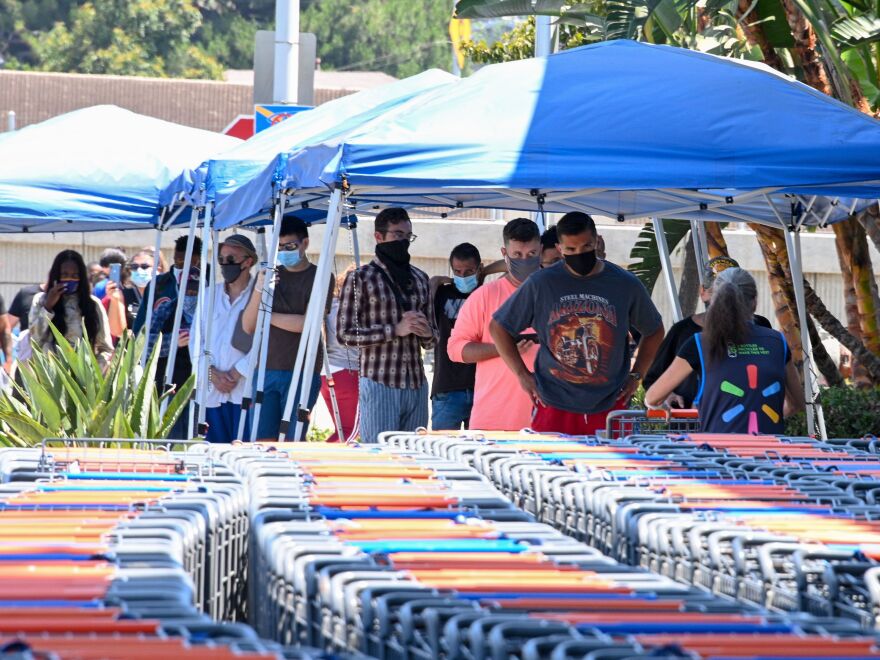Updated at 4:52 p.m. ET
Another day, another mind-boggling milestone: 4 million people in the U.S. have tested positive for the coronavirus. The U.S. hit the 3 million mark just 15 days ago.
That's according to a tracker from Johns Hopkins University.
More than 143,700 people have died from the virus in the U.S. — nearly twice as many as Brazil, the country with the second-highest number of fatalities.
Case numbers continue to rise in most U.S. states and territories.
While confirmed cases have surpassed 4 million, federal health officials have said the actual number is likely many times higher. "Our best estimate right now is that for every case that was reported, there actually were 10 other infections," Dr. Robert Redfield, director of the Centers for Disease Control and Prevention, said last month.
No part of the country has been untouched by the virus. The New York metro area was the first epicenter in the U.S., and the city became a ghost town amid skyrocketing case numbers. It is now gradually reopening.
New hot spots emerged in June and July: California, Texas and Florida now have large numbers of cases, and Arizona and Louisiana have especially significant case numbers compared with the size of their populations.

California now has more than 425,000 confirmed cases. The state had two days in a row this week with more than 12,000 new cases.
Florida set a grim new mark of its own Thursday: 173 deaths in one day, along with more than 10,000 new cases. Florida is now behind only California and New York in total cases. Miami-Dade County is the state's epicenter, with a positivity rate near 20%.
In Arizona, the rate of cases per 100,000 residents is 2,127.5 – which is to say, more than 2% of the population.
So where is the U.S. now, compared with where the experts projected the country might be?
At the end of March, a model from the University of Washington's Institute for Health Metrics and Evaluation cited by the White House projected this: "Nationwide, a total of 82,141 COVID-19 deaths (range of 39,174 to 141,995) are currently projected through the epidemic's first wave. US COVID-19 deaths are estimated to rise through April 15, the country's projected peak of deaths per day."
The U.S. is still in the first wave, and the number of deaths has exceeded the high end of that projection. And that predicted peak on April 15? According to the Johns Hopkins University tracker, the U.S. had its highest peak so far on July 16, when there were more than 77,000 new cases.
One trend in recent weeks has been more cases among young adults. State and local officials have noted rising case numbers among those in their 20s and 30s, warning that it's important to keep practicing social distancing, mask wearing and hand washing — because young people can spread the virus to more vulnerable populations, even if they are less likely to get severe cases of COVID-19.
But the U.S. is rife with mixed messages: Restaurants in many places have reopened for indoor dining, even though it's become clear that the virus spreads most readily indoors.
In recent days and weeks, many governors and mayors have mandated that people must wear masks in public places. But in Georgia, Gov. Brian Kemp overruled local government requirements for face coverings and sued Atlanta Mayor Keisha Lance Bottoms for her efforts to require masks.
The rising case numbers suggest that little will be resolved by the time school begins next month — an issue vexing parents, governments, employers and the students themselves.
Copyright 2021 NPR. To see more, visit https://www.npr.org. 9(MDAxODc1ODA5MDEyMjg1MDYxNTFiZTgwZg004))






